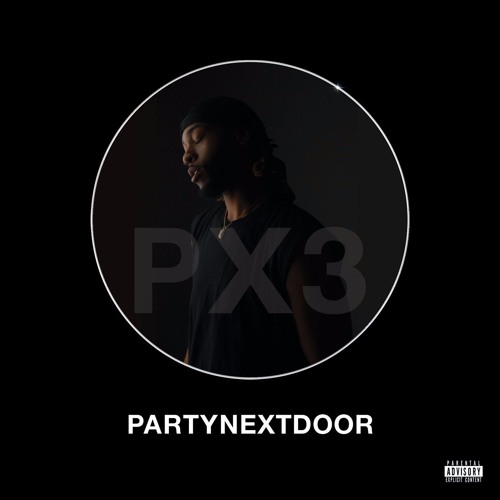

These details are spread throughout the record’s high points, such as the Carlos Santana-esque guitars that punctuate “Spiteful”, the Jamie xx-aping jingles of “Brown Skin”, and “Joy”, which sounds like a chopped and screwed ode to Brenton Wood. Melodic shifts that initially go unnoticed reveal themselves to be vital upon repeat listens. The musician’s ability to find intricacies in the modern R&B template has always been a strength, but with P3, a shift towards eclectic styles winds up hogging the spotlight. Handling production on eight of the album’s 16 tracks, PartyNextDoor’s arrangements once again steal the show. In lyrical terms, braggadocio like “She call me daddy” and “You never had better baby” (two of the cleaner quotables) are good samplers of the album’s sex-driven theme, but as Brathwaite continues to prove behind the board, the novelty isn’t so much in the content as it is the novel arrangement of chords and refrains. “Not Nice”, P3’s second single, plays like a paranoid sequel to Views contribution “With You”, swapping out gleeful rhythms for a frantic pace, while “Only U” feels like the album’s lone party starter. Making good on his “Work” success, Brathwaite’s island-flavored tracks find a pocket within his Jamaican patois and slippery cadence. This wooziness spills right into the steel drum bounce that many will anticipate heading into the album.

While prior albums marked more traditional breaks in structure, the singer’s unorthodox approach here makes for woozily, assured results. “Hopes” also exposes a newfound confidence in delivery, as this tune, along with cuts like “Don’t Know Her” and “You’ve Been Missed”, embrace Brathwaite’s vocal limitations and adhere them to a canvas on which refrains meld into hooks and vice versa. Clocking in at over seven minutes, the song burrows into its own instrumental before turning things inside out with a sleepy, rapped coda (an inspired choice to open things up). Album intro “High Hopes” is a menacing banger, sprinkling raindrops and tinkling piano keys while Brathwaite weaves through vocal riffs with the confidence of a prizefighter. It’s a reflective moment to savor, as the rest of P3 parks in VIP and remains there on its own merit. Buried on the album’s back half, the confessional slow jam follows Drake’s lead, dropping lines about lingered-on voicemails and regrets as if to prove one last time that PartyNextDoor has perfected his tenure as an OVO sidekick. “Come and See Me”, the album’s promotional single and lone collaboration - fittingly, from the Champagne Papi himself - plays as both a misleading appetizer and one of the few tracks that finds Brathwaite playing within the lines. Perched atop a launching pad into the mainstream, and benefiting from Drake’s stellar production stable of Noah “40” Shebib, Boi-1da, and Nineteen85, Brathwaite instead decides to hunker down with a dense, lengthy, and feature-lacking song cycle. It is ironic, then, that his latest project, the predictably titled PartyNextDoor 3 (or P3 for short), winds up being the singer’s least conventional work to date.

1 by penning the Rihanna smash hit “Work”, which spent nine consecutive weeks on top. Earlier this year, the 23-year-old even scored his first Billboard No. The lighter take made Party an underground favorite, while his production/vocal talents elevated him from Drake flunky to frequent collaborator. But whereas the Weeknd churned out mournful confessions and nihilistic odes, Party’s 2013 debut was a slick-talking, hook-laden medley for charismatic dirtbags. On paper, it was a sound business move because both Party (born Jahron Brathwaite) and the Weeknd (born Abel Tesfaye) were cryptic torch-bearers of the Toronto music scene with tendencies towards the city’s darker side. He rose to prominence at a bizarre time: label boss Drake and affiliate The Weeknd had just parted ways, and the rap star seemingly swiped Party up as a crooning replacement. PartyNextDoor’s music career has been spent in the shadows.


 0 kommentar(er)
0 kommentar(er)
